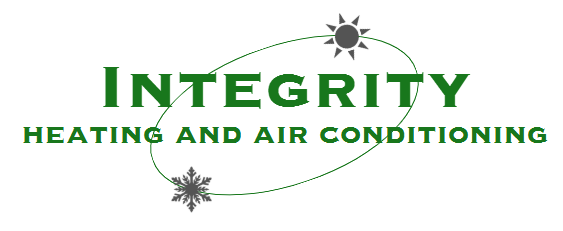Breathe Easier: A Simple Guide to Your Home's Indoor Air Quality
Jennifer Heinzelman | Oct 14 2025 10:59
You clean your home regularly, but have you ever thought about the air you breathe inside it? "Indoor air quality," or IAQ, is a term you might hear from HVAC professionals. It sounds technical, but it’s just a fancy way of talking about how clean and healthy the air is in your home. And your HVAC system is a major player in keeping that air fresh.
So, let’s break down what IAQ is, why it matters, and how your heating and cooling system can help.
What is indoor air quality (IAQ) and why does it matter?
IAQ is the overall health of the air inside your home. Think about all the things you do every day: cooking, cleaning, and simply living. These activities release tiny particles and moisture into the air. Add to that dust, pollen, pet dander, and other irritants that get into your home, and the air can quickly become stale and polluted.
Good indoor air quality is vital for your family’s health and comfort. Poor air quality can contribute to:
- Worsened allergies and asthma symptoms.
- Itchy eyes, sore throats, and sinus problems.
- Headaches and fatigue.
- Musty odors from mold and mildew.
The good news is, your HVAC system is the perfect tool for fighting back against these common household pollutants.
Your HVAC system is more than just a thermostat
You probably think of your HVAC system for heating and cooling, and it’s great at that. But a well-maintained system also acts as your home's air cleaner and dehumidifier.
Here’s how your HVAC unit and ductwork work together to improve the air you breathe:
- It’s a giant vacuum. Your HVAC system pulls air in through return vents, runs it through an air filter, and then sends it back out. If your system is working properly, it's constantly trapping dust, pollen, and other irritants as the air circulates.
- It controls humidity. A healthy home needs balanced humidity. Too much moisture can lead to mold and mildew, while air that is too dry can irritate your skin and sinuses. Your HVAC system helps keep humidity levels in the "just right" zone, which is generally between 30% and 50%.
- It brings in fresh air. Proper ventilation is key. Your system helps exchange stale indoor air with fresh outdoor air, diluting indoor pollutants and keeping things feeling fresh.
What you can do to improve your IAQ
The good news is you don’t need to be an air quality expert to make a big difference. You can help your HVAC system do its job more effectively with these simple habits:
- Change your filters regularly. This is the #1 thing you can do for your system and your air quality. Clogged filters can't trap irritants effectively, and they make your system work harder. Change your filters every 1 to 3 months, especially if you have pets or allergies.
- Schedule regular tune-ups. Think of this as a check-up for your HVAC system. A professional will clean and inspect your unit, making sure all the components are running smoothly and not spreading any hidden dust or mold.
- Clean your ducts. Over time, dust, pet hair, and other debris can build up in your air ducts. If it's been a while, a professional duct cleaning can remove all that buildup, so it doesn't get blown back into your home.
- Consider an upgrade. For those with severe allergies or other respiratory issues, there are upgrades that can be added to your HVAC system for extra protection. These include HEPA filters, which trap even smaller particles, or UV lights that can kill bacteria and viruses.
Take control of your home's air
The air in your home plays a direct role in your family’s health and well-being. By understanding how your HVAC system impacts indoor air quality and taking a few simple steps, you can create a healthier and more comfortable living space.
If you’re concerned about the air in your home, schedule an HVAC inspection with the Integrity team today. We can help you find the right solutions to start breathing easier today.

